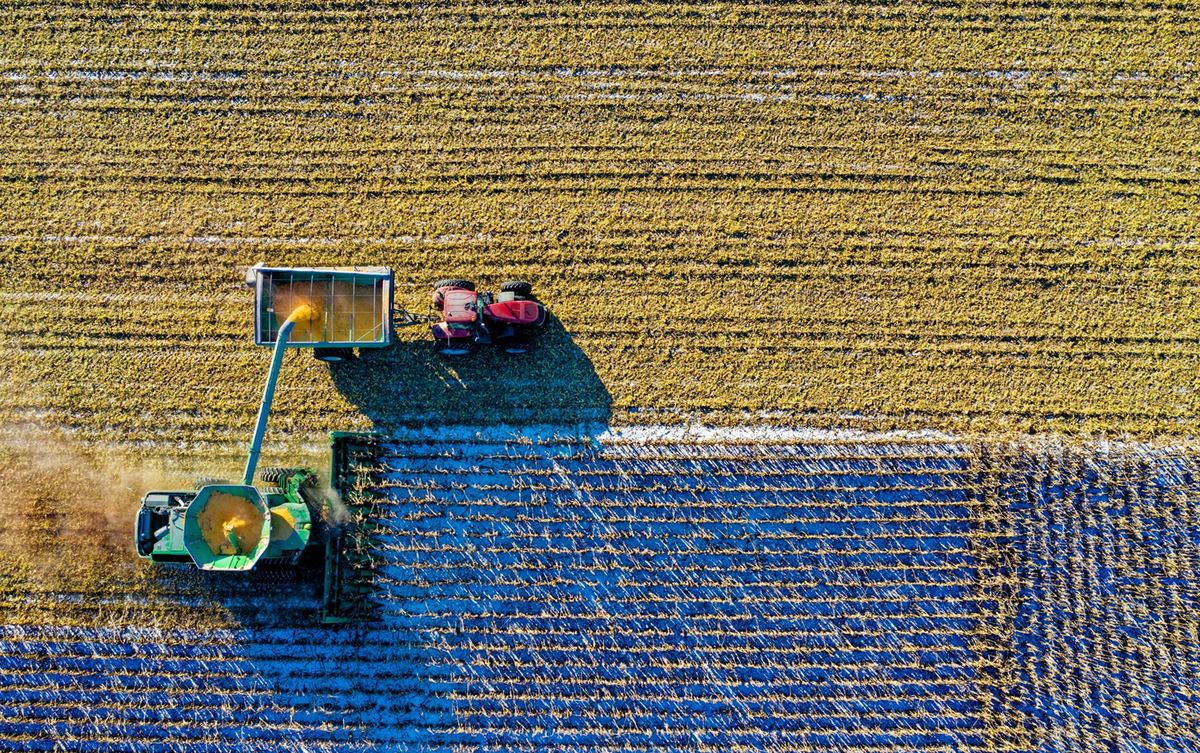
Summary
EU institutions have reached an agreement on the reform of the Common Agricultural Policy (CAP) after more than two years of negotiations. However, critics fear that there is a deep divide between the CAP reform and the ambitions of the European Green Deal.
Organised right after the CAP agreement and before the UN Food Systems Summit, this online debate sought to address the future of the EU’s agriculture and food sectors and the role EU decisions on agriculture play at the international stage.
Urgency for change
“The main idea from the IPCC Special Report on climate change and land is that a focus on sustainable land management to prevent land degradation is a leading policy solution,” said Koko Warner, who manages the UN Climate Secretariat’s Vulnerability subdivision. (8:40)
Warner stated that “this is the window of opportunity to reshape policy and to ensure people are well fed and safe, as well as to tackle some of the greatest challenges posed by climate change.” (11:17)
Tassos Haniotis, Director for Strategy, Simplification and Policy Analysis at the European Commission Directorate-General for Agriculture and Rural Development, challenged some misconceptions. “It is important to move away from the old thinking pitting economic concerns against social development and environmental footprint. This is something we have to change,” he said. (50:10)
“We have no time to waste,” said Ivo Degn, Co-Founder and CEO of Climate Farmers. “Deciding on the CAP for the next seven years is not feasible,” he continued. “If we maintain this legislation for seven years, we will not be able to achieve our goals, which are not ambitious enough.” (01:09:50)
A passionate call to action was launched by Sarah Wiener, Member of the European Parliament Committee on Agriculture and Rural Development. “Business as usual is no longer an option. What we need is a system change, a real turnaround in how we produce our food. We need to reduce the use of pesticides by 50%, halve the use of antibiotics in livestock farming, and increase the share of organic farming to at least 25% of arable land.” (46:50)
Soil directive
The lack of a soil directive at EU level was highlighted as a key lacuna, given the continued focus on agricultural practices and land management.
“It is a paradox that we don’t have a soil directive in the European Union,” said Haniotis. “Yet most of our proposed solutions and most of the Common Agricultural Policy focuses on practices that affect land management and have an impact on soil.” (51:33)
This view was also picked up by Warner, who said that “if policy does not ensure soil can play its full ecosystem role, then there will be a point beyond which there won’t be very much that policy and society can do.” (01:06:53)
The external dimension of the agricultural policy of the EU
How the EU decides to regulate agriculture will not only affect farmers within its borders, but also other regions of the world. “The EU Farm to Fork Strategy will certainly affect us, particularly when it comes to reducing inequality,” said John Makoha, Regional Director for Uganda of the AVSI Foundation. (32:15)
The importance of the global dimension was also referenced by Haniotis. “There is no available land to produce food, so we need to find ways that solve a global problem in a global dimension. This is not something we can do alone.” (51:04).
Lorenzo Van Elsen of the Belgian Foreign Trade Agency stated that “as the world’s leading food importer, the EU can use its external policies to stimulate and encourage a global transition towards more sustainable food practices.” (39:32)
Civil society
“We need to listen to civil society organisations,” said Makoha. (35:40) “We need to listen to young people. You cannot improve the agriculture system in Uganda without having a political link to the youth.”
Christel Weller-Molongua, Director of the Rural Development and Agriculture Division at the Deutsche Gesellschaft für Internationale Zusammenarbeit (GIZ), also touched on the national dialogues that are planned worldwide in the context of the UN Food Systems Summit. She called this is an “interesting approach” and encouraged the European Union to take notice of these national dialogues which brought forth “rich results”. (1:14:55)
About
The EU’s agriculture and food sectors are in need of major reform if they are to play their part in achieving climate neutrality. Now that the European Parliament and Council have clinched a deal on the Common Agricultural Policy (CAP) after years of negotiations, questions remain on the environmental ambition of the agreement.
Building on our 2019 Conference on the Future of Food, this online debate will bring together key experts and policymakers to shed light on the challenges the EU is facing to reform its agriculture and food sectors and make its policy consistent with the European Green Deal.
Our events include photos, audio and video recording that we might use for promotional purposes. By registering, you give your permission to use your image. Should you have any questions, please contact us.
Schedule
As the European Commission prepares to refit its climate architecture and reduce emissions by at least 55% this decade, agriculture and food systems are missing from the equation. The EU’s agricultural sector is responsible for 10% of the bloc’s greenhouse gas emissions and little progress has been made in recent years. While the next iteration of the Common Agricultural Policy (CAP) should have incorporated the targets of the European Green Deal, negotiators failed to nail down the transition to ecological farming.
The Farm to Fork and Biodiversity Strategies, on the other hand, aim for a complete overhaul of the EU’s food system to reach climate neutrality by mid-century. Presented as part of the European Green Deal, the initiatives come with a host of legislative and non-legislative measures to realise the shift to a sustainable food system that can weather times of crisis. As the dust settles on the CAP agreement, our debate looks at how to bridge the gap between the CAP and the ambition of the European Green Deal.
- Is there still a chance to align the CAP with the targets in the Farm to Fork and Biodiversity Strategies?
- What must be done for EU policymakers to speak with one voice at the UN Food Systems Summit later this year?
- The Farm to Fork Strategy aims to make the EU food system a ‘global standard for sustainability’. What is needed to get there?
speakers
Ivo Degn
Co-Founder and CEO at Climate Farmers
Tassos Haniotis
Director for Strategy, Simplification and Policy Analysis at the European Commission Directorate-General for Agriculture and Rural Development
Koko Warner
Lead Author of the 2019 IPCC Special Report on ‘Climate Change and Land’; and Manager of the Vulnerability subdivision, Adaptation division at the United Nations Framework Convention on Climate Change (UNFCCC)
Christel Weller-Molongua
Director of the Rural Development and Agriculture Division at the Deutsche Gesellschaft für Internationale Zusammenarbeit (GIZ)
César Luena
Vice Chair of the European Parliament Committee on the Environment, Public Health and Food Safety and rapporteur on the EU Biodiversity Strategy for 2030: Bringing nature back into our lives
Francisco Guerreiro
Vice Chair of the European Parliament Committee on Agriculture and Rural Development
Sarah Wiener
Member of the European Parliament Committee on Agriculture and Rural Development
moderator
Dharmendra Kanani
Chief Operating Officer and Chief Spokesperson of Friends of Europe
Speakers

Co-Founder and CEO at Climate Farmers
Ivo Degn is the Co-Founder and CEO of Climate Farmers. After building the largest social business incubation system in Europe, he has returned to his roots in agriculture to found Climate Farmers and support large-scale change in agriculture. Climate Farmers is a technology-based impact start-up aiming to reverse climate change while improving agricultural productivity. Climate Farmers is a grantee of the Google Impact Challenge on Climate Change, which funds bold ideas that aim to use technology to accelerate Europe’s progress toward a greener, more resilient future.
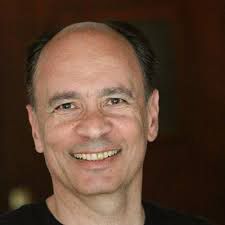
Director for Strategy, Simplification and Policy Analysis at the European Commission Directorate-General for Agriculture and Rural Development
Tassos Haniotis is the Director for Strategy, Simplification and Policy Analysis at the Directorate-General for Agriculture and Rural Development of the European Commission. During his decades-long career at the European Commission, Haniotis has held many roles. He worked in the Cabinet of former European Commissioner for Agriculture Franz Fischler and has covered some of the major agricultural dossiers, including the preparation of the 2003 reform of the Common Agricultural Policy, the agricultural chapter of the Doha WTO Round and the EU-Mercosur negotiations. Haniotis also served as the Agricultural Counsellor of the European Commission’s Delegation in the United States.
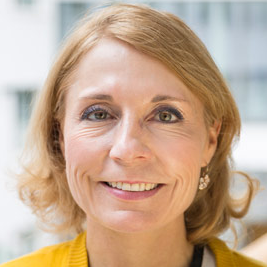
Lead Author of the 2019 IPCC Special Report on ‘Climate Change and Land’; and Manager of the Vulnerability subdivision, Adaptation division at the United Nations Framework Convention on Climate Change (UNFCCC)
Koko Warner manages the UN Climate Secretariat’s Vulnerability subdivision where she guides the adaptation knowledge hub, helping to scale up adaptation action, and the Local Communities and Indigenous Peoples Platform. Warner is an Intergovernmental Panel on Climate Change (IPCC) lead author for the Special Report on Climate Change and Land, and 5th Assessment Report on climate impacts, adaptation and vulnerability. Previously, she was a founder and Executive Director of the Munich Climate Insurance Initiative and Head of Research on Environmental Migration and Social Resilience at UN University in Bonn. In 2014, she was named one of the top 20 women making waves in the climate change debate by the International Council of Science.
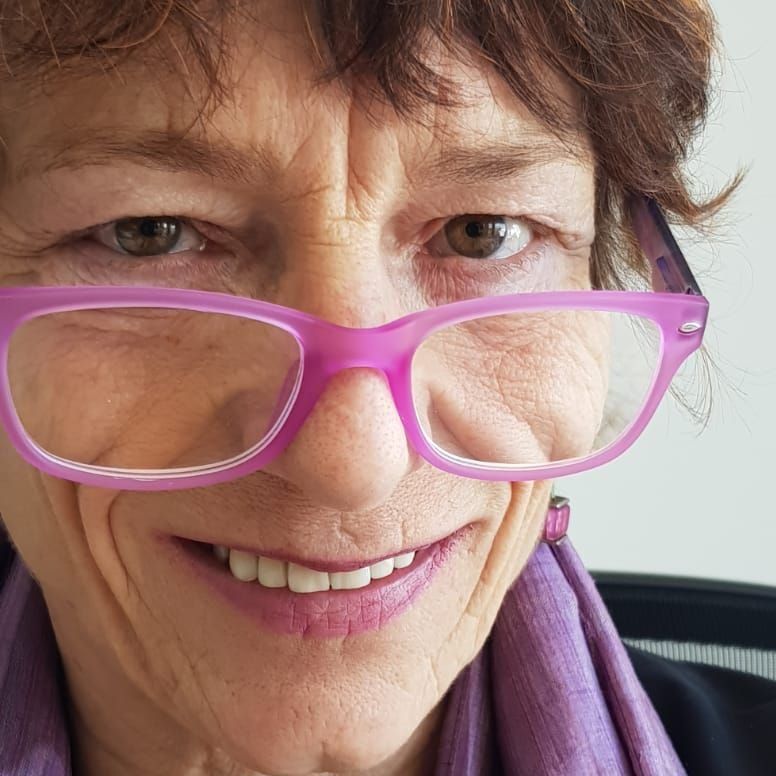
Director of the Rural Development and Agriculture Division at the Deutsche Gesellschaft für Internationale Zusammenarbeit (GIZ)
Christel Weller-Molongua has been involved in rural development since 1989, when she joined the the Deutsche Gesellschaft für Internationale Zusammenarbeit (GIZ). Currently, she is the GIZ focal point for the Special Initiative “ONE World No Hunger”. Before that, she worked in Africa and as Country Director of GIZ in Honduras, while at the same time leading a project on biodiversity and sustainable forest and land use management. During her career, Weller-Molongua has always paid attention to the role of women in agricultural development and covered multiple dimensions of rural development such as land use planning, sustainable resource management, nutrition security and participatory development.

Vice Chair of the European Parliament Committee on the Environment, Public Health and Food Safety and rapporteur on the EU Biodiversity Strategy for 2030: Bringing nature back into our lives
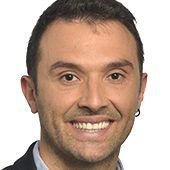
Vice Chair of the European Parliament Committee on Agriculture and Rural Development
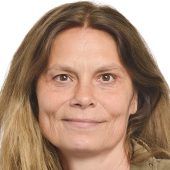
Member of the European Parliament Committee on Agriculture and Rural Development
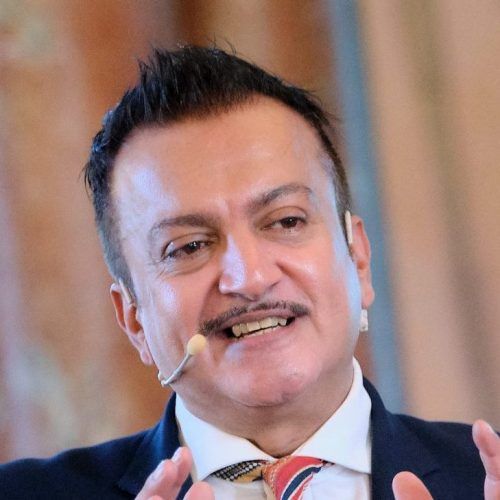
Chief Operating Officer and Chief Spokesperson of Friends of Europe
Prior to joining Friends of Europe, Dharmendra Kanani was director of policy at the European Foundation Centre (EFC). He was the England director at the Big Lottery Fund, the largest independent funder in the UK and fourth largest in the world. Dharmendra has held senior positions in the public and voluntary sectors and advisor to numerous ministerial policy initiatives across the UK.
Partners
Activities
A bold vision for a climate-neutral and competitive Europe
Next event In person & livestreamed

- Area of Expertise
- Climate, Energy & Natural Resources
European Oceans Pact: is maritime transport on board?
Past event In person & livestreamed

- Area of Expertise
- Climate, Energy & Natural Resources
Staying the course: driving sustainability forward in a shifting…
Past event In person & livestreamed

- Area of Expertise
- Climate, Energy & Natural Resources
Navigating risks and enhancing resilience: charting Europe’s energy and…
Past event In person & Livestreamed

- Area of Expertise
- Climate, Energy & Natural Resources
Energy prices coming down – is Europe on the right track?
- Category
- #CriticalThinking
- Author
- By Andris Piebalgs
Europe’s blackouts call for a NATO-level response
- Category
- #CriticalThinking
- Author
- By Maurizio Geri
We need a new cultural strategy for global climate action
- Category
- #CriticalThinking
- Author
- By Saman Rizwan
A betrayal of the future: the EU must act now
- Category
- #CriticalThinking
- Author
- By Benjamin Van Bunderen Robberechts

- Area of Expertise
- Climate, Energy & Natural Resources

- Area of Expertise
- Climate, Energy & Natural Resources

- Area of Expertise
- Climate, Energy & Natural Resources
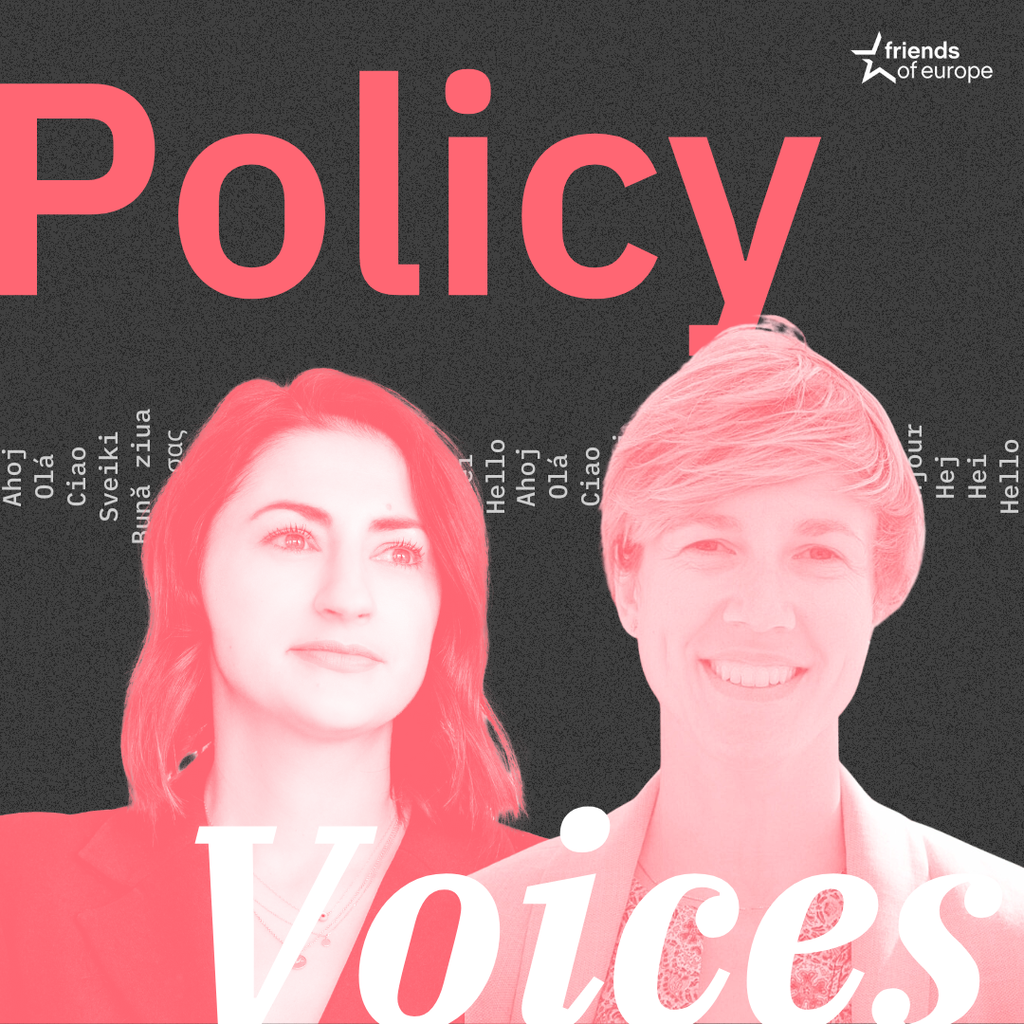
- Area of Expertise
- Climate, Energy & Natural Resources
Continue
the debate on
- Debating Europe


